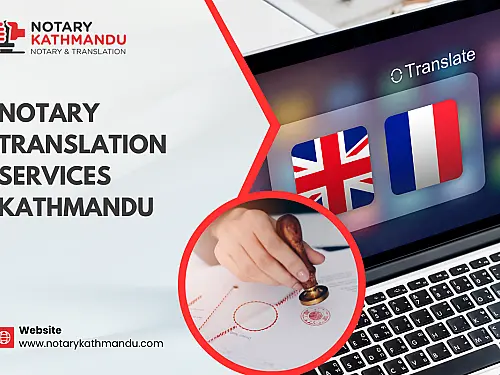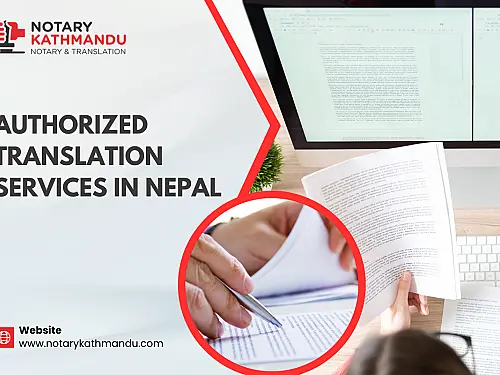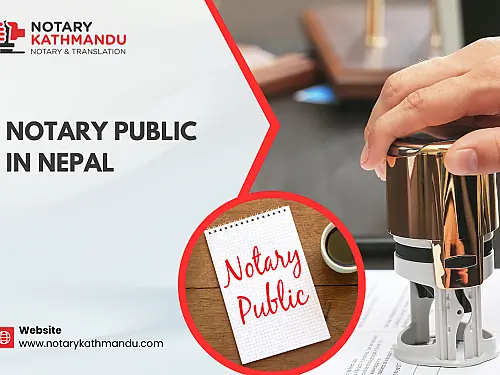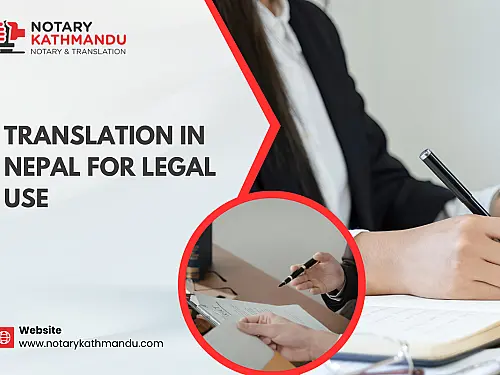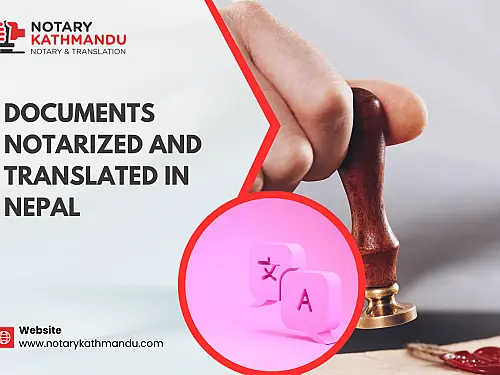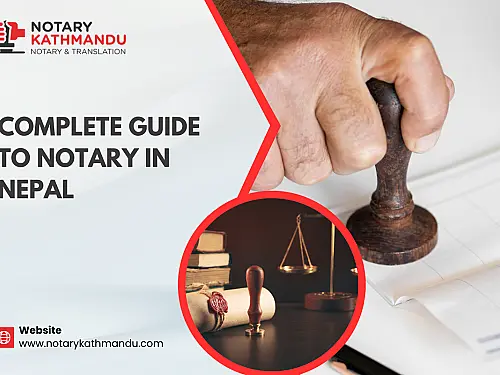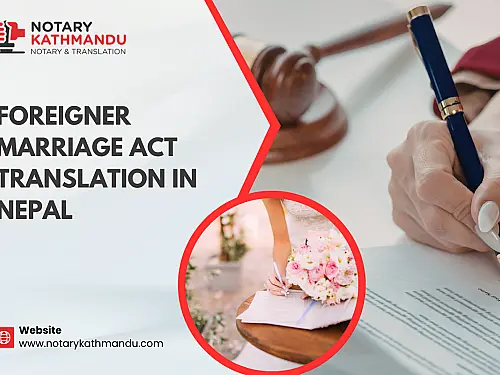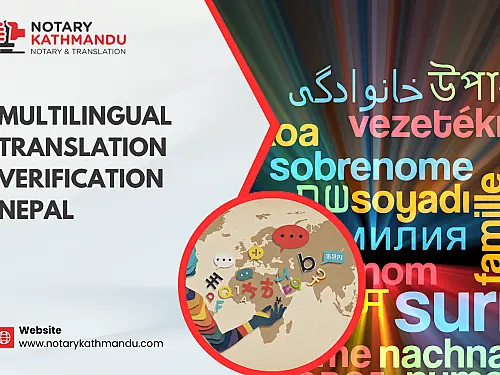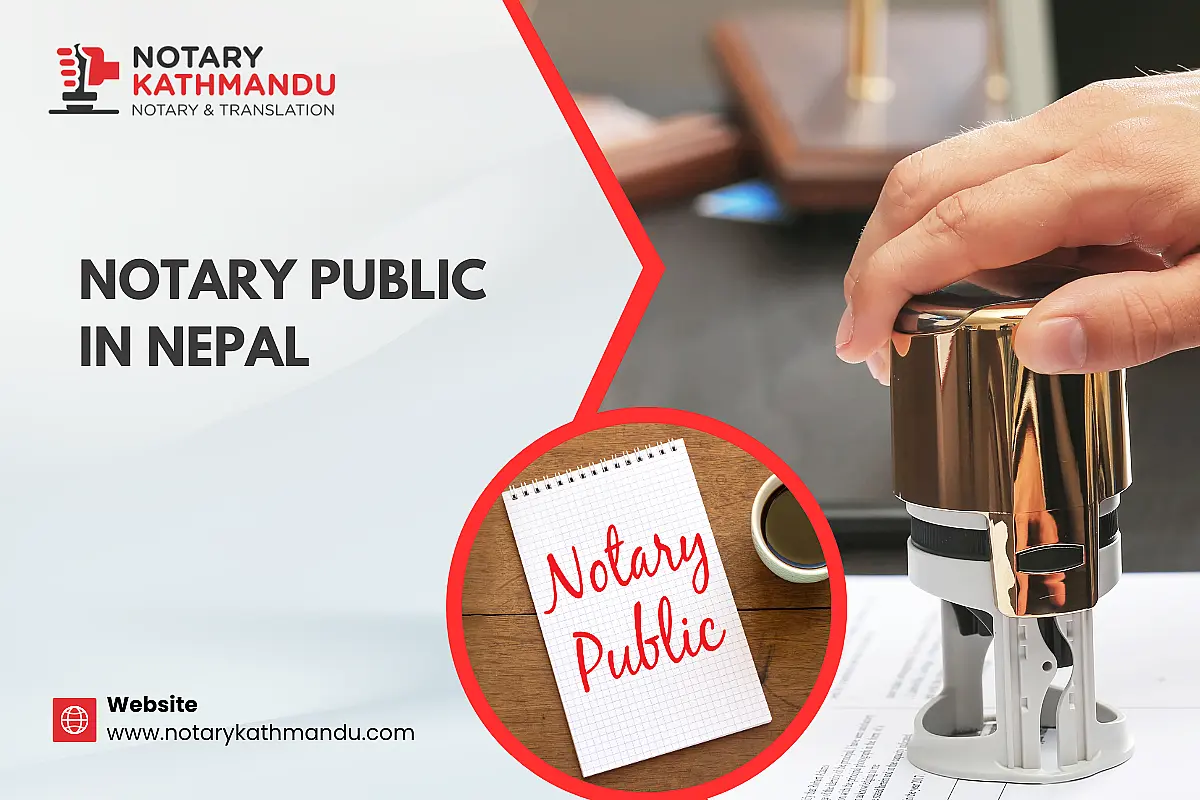
Table of Contents
Every year, thousands of Nepali citizens and residents need to notarize documents for court use, visa applications, property transfers, academic purposes, or immigration. In fact, a majority of embassy document rejections stem from errors in notarization or translation. So, how do you make sure your papers are legally valid and accepted?
You turn to a licensed Notary Public in Nepal.
Whether you're in Kathmandu, Lalitpur, Pokhara, or abroad, this guide will walk you through everything—from Power of Attorney (POA) to affidavits, online options to embassy requirements—so you can confidently submit documents that are correctly certified, translated, and ready to go.
What Is a Notary Public in Nepal?
A Notary Public is a legal professional licensed under the Notary Public Act, 2063 to witness, verify, and certify official documents. They ensure the authenticity of documents, verify identities, and provide seals/stamps that make your paperwork legally admissible in courts, embassies, government offices, and private institutions.
Common Notary Services in Nepal:
Verifying copies of passports, citizenship, and IDs
Certifying legal contracts, agreements, and POAs
Witnessing affidavits, declarations, and consents
Certifying translations of official documents
Preparing self-declarations and legal notices
Document Notarization in Nepal: What You Need to Know
How to Notarize Documents in Nepal:
Prepare your original document and a valid photo ID.
Visit a licensed notary office or submit documents online (where allowed).
Your identity is verified and the document reviewed.
The notary certifies it with their signature, stamp, and official seal.
Documents Commonly Notarized:
Power of Attorney (property, legal, family)
Academic certificates
Affidavits for visa or court use
Legal contracts
Property sale deeds
Travel consents
Same day notarization is available in many cities including Kathmandu and Pokhara.
Power of Attorney (POA) in Nepal
A Power of Attorney is a legal document that authorizes someone to act on your behalf. In Nepal, POAs are often used by:
NRNs managing property
Migrants abroad delegating legal representation
Families handling elder care, medical, or legal affairs
POA Types in Nepal:
General POA – Broad powers over legal or financial matters
Special POA – Limited to a specific action (e.g. selling land)
The POA must be notarized and often translated if submitted abroad.
Affidavits & Legal Declarations
Affidavits are sworn legal statements used for:
Visa sponsorships
Property disputes
Academic submissions
Immigration or embassies
Popular Affidavit Services:
Affidavit notarization in Nepal
Sworn affidavit format in Nepali
Affidavit for university or embassy
All affidavits must be clear, specific, and notarized to be accepted in court or embassy offices.
Online Notary and Mobile Services
While Nepal doesn’t yet offer a full e-notary system, remote notarization is still possible through:
WhatsApp/Viber/email document submission
Video call identity verification (when needed)
Document review and certification by a notary in-office
Scanned copy sent by email + optional courier of hard copy
This is especially useful for:
NRNs living abroad
Expats and migrants needing POA or affidavit services
Busy professionals needing urgent assistance
Some providers also offer mobile notary services—the notary comes to your location.
Notarizing Embassy and Visa Documents
Embassies require documents to be correctly translated and notarized. Any mismatch or formatting issue can lead to rejection.
We help with:
Visa affidavits (study, work, spouse)
Embassy document translations
POA notarization for NRNs abroad
Legal declarations
Check with your embassy's requirements. Common destinations include USA, Canada, Australia, Japan, UK, and EU countries.
Certified Translation and Notarization
In addition to notarization, many documents require authorized translation in Nepal:
Translation Pairs:
Nepali to English
English to Nepali
French, Arabic, Japanese, Chinese, Korean, Hindi, and more
Use Cases:
Academic documents (transcripts, certificates)
Employment letters
Birth, marriage, or death certificates
Legal documents (contracts, POA)
Translations must be certified, notarized, and often formatted according to embassy or university standards.
Locations: Where to Find a Notary Public in Nepal
You can find licensed notaries in:
Kathmandu – Civil Trade Centre, Sundhara and other legal hubs
Lalitpur – Pulchowk, Jawalakhel, Kupondole
Pokhara – Chipledhunga, New Road, Mahendrapool
Other districts via district bar associations and mobile notary services
Always verify that the notary is listed on the Nepal Bar Council register.
Tips to Ensure Notary Acceptance
Always carry an original ID
Translate documents before notarization, if needed
Don’t leave blank spaces on the document
Ask for scanned and hard copies
Request bilingual format for international use
Final Thoughts
Getting your documents notarized in Nepal doesn't have to be a hassle. With licensed professionals, online submission options, and embassy-compliant processes, you can get everything done faster and smarter.
Whether you're preparing a POA, translating academic records, or submitting a visa affidavit, working with a trusted Notary Public in Nepal ensures your documents are secure, legal, and accepted.
This article is for informational purposes only and does not constitute legal advice, advertisement, or solicitation. Notary Kathmandu and its team are not liable for any consequences arising from reliance on this information. For legal advice, please contact us directly.

